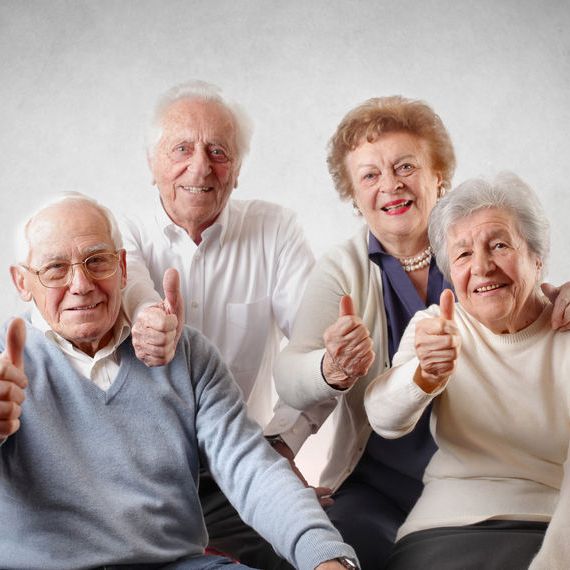iSavta | 21.05.2020

In a society that is obsessed with endless youthfulness - botox, plastic surgeries, even physical exercises, many have forgotten that there is no other fate but for the body to age. Age can probably be hidden somehow by good skin care or even make up, but we can still expect almost always that eyesight, hearing, and even mental status would become downgraded as people race towards the end. For those whose parents have reached 60, 70 or 80 years of age, we can surely notice various changes - things we were not used to growing up with, but have now become the new reality.
For millennials, reality is just spending most of their time on their mobile devices - either on social media, or on online games, without realizing that they too are slowly aging. The millennial generation have become an extremely digital, social generation. They post all kinds of fashion, new gadgets, vacation, and even food. However, most of them don’t have any savings or investments at all - things that are also essential to have a good life in the future.
When a person has started to earn, it is the best time to start saving for the old self. Nobody can escape from getting old except for those who die young. Sometimes, people think, “I’m still young, I am healthy, I don’t need to save now, I can do it in the future.” However, not all the time are we healthy when the future comes. In fact, from college graduation until retirement, a person has only around 40 years to earn and save, before one becomes frail, and won’t have the same opportunity to earn anymore.
Once a person has reached the age of 60, at a time when companies would probably ask you to retire, is most probably also the time when health issues start to come out. The truth is, we do not know exactly what a person will go through in the future, but as mentioned, there are 2 things that are for sure:
SICKNESS
One time in our lives, most probably we’ll get hospitalized. Some will undergo surgery, some will have diabetes, hypertension, cancer or even just diarrhea! These diseases seem very common that everybody knows about them, but only few prepare. Even in this modern society where buildings have reached the sky, diseases still threaten life. One great example is COVID-19. Who would have thought there will be a lot of casualties this 2020 due to a tiny invisible thing? And who would have thought 2020 would be the end of some doctors/nurses that we know, some of our neighbors, family members and friends? Sickness is truly a sad reality.
DEATH
Some may recover from a certain illness, will have a few more years to see the beauty of the earth, then, ultimately everybody still needs to graduate from this life. Once our time has come, nobody can say no, either we die from sickness or from an accident, or just by sleeping, but definitely, that day is going to come. Death is a painful process of leaving or being left. And while some are very careful with their diet, serious with their exercise routines, or with their food choices, there is still no escaping in this other reality.
As caregivers, we need to realize that like us, older people are human beings with emotions - faced with realities of sickness and death on their way - something all of us will go through in the near future. Some of our clients may be noisy, have memory loss, have hearing loss, slow and sluggish, and sometimes we feel impatient, we have to put our feet on their shoes, and see that this reality may also apply to us very soon. As sad as it may sound, we want to emphasize a more positive concept many of us already know - Quality of Life.
QUALITY OF LIFE
It may be a vague concept but definitely, a balance among several factors - emotional, physical, material and social well-being, would surely bring our clients to a better, blessed life. For some, QOL is defined in terms of economical achievements, for others - healthful living, and for others - it’s about happiness. When we simplify things, we can see that in some way or another, they are intertwined. A person cannot really be 100% happy when he has no finances to buy food, which in turn would lead to poor health, and decreased socialization.
Each individual would always be unique, like in each one's personality traits, and may have different goals in life. Some may just be happy knowing their children or grandchildren are living in a safe environment even if they are physically distant , for some it may just be seeing them physically and being able to hug and kiss them. As health care professionals, we have to lend our ears to them - listen to them or even try to understand their silent concerns, thus helping them achieve quality of life, before the final roll call. After all, we would also wish the same thing when it’s our turn.



